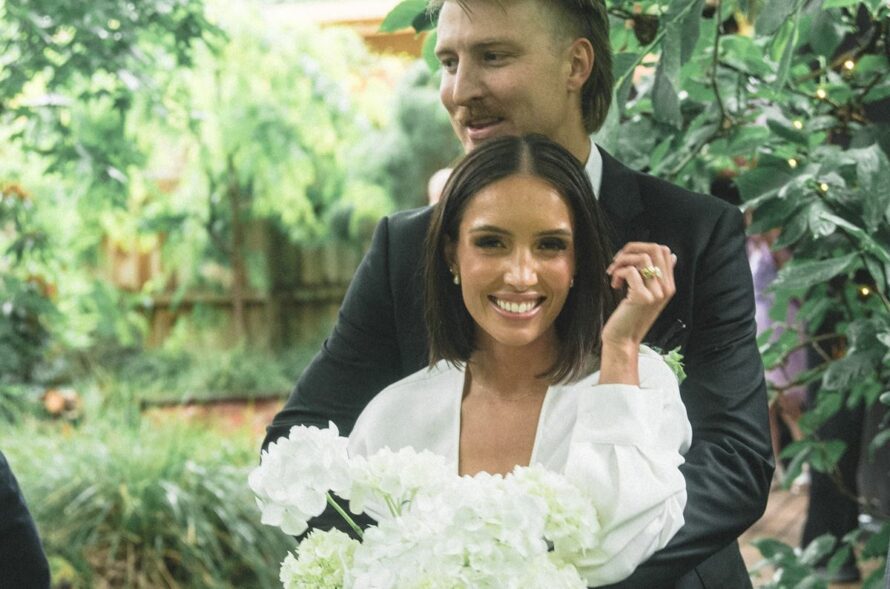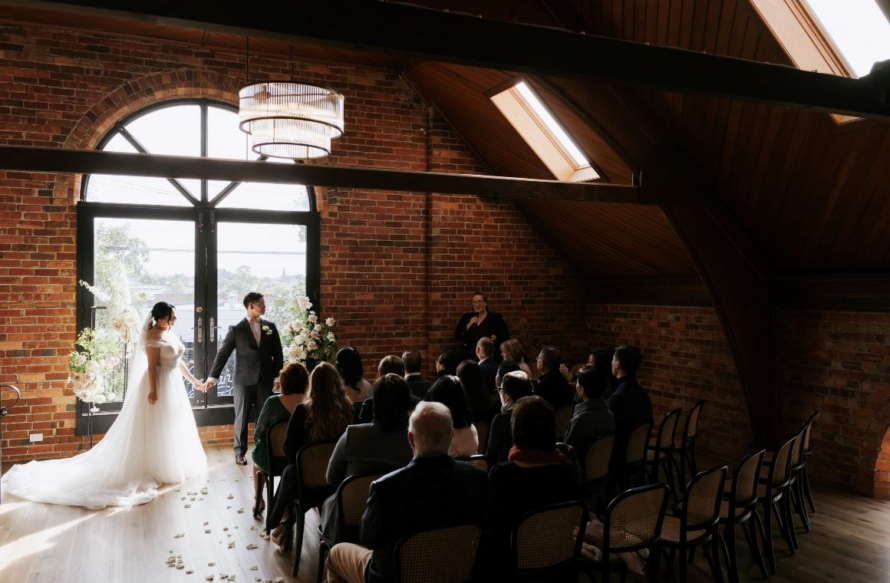Congratulations, you’re engaged – and looking forward to happily ever after. But first you’ve got a wedding to plan. And that means creating a wedding invitation to suit your unique wants, needs and circumstances. Here is some information to help you decide on the wording.
Traditional wording
Traditional wedding invitations are marked by precise wording, which is an essential part of defining everyone’s part in the day. Normally, they only feature the names of the bride’s parents, since they traditionally bore the majority of the wedding costs. But these days, many couples choose to acknowledge the groom’s parents as well, especially when costs are quite likely shared. Here is an example…
Mr and Mrs John Smith (proper names of the hosting parties)
Request your presence (the request line)
At the marriage of their daughter (the relationship of the bride to the host)
Mary Jane (the bride’s first and middle name)
To Gene Harris (groom’s name)
Son of Mr and Mrs Peter Green
Date
Time
Location of the wedding
City and state
Reception will follow (add the location if it differs to the ceremony venue)
Casual yet traditional wording
This kind of wedding invitation is less in-depth and reflects the more casual style of the celebration, albeit with the crucial information still front and centre. With this in mind, there are a variety of alternatives and inclusions that can feature. Here is an example…
John and Jane Smith (first names are appropriate for casual/outdoor wedding invitations)
Invite you to the wedding of their daughter
Sarah Beth
To Riley Rich
Day and date
Time
Location
Reception details
Depending on the when and where, you may also choose to include additional information, whether it’s noting a theme or giving practical advice such as encouraging guests to dress casually for a beach ceremony.
Image: Alannah Rose Image via PapermarcCouple-hosted wording
If you are hosting and paying for your own wedding, there is no need to include your parents’ names on the invitations. They just need the basic details such as ceremony and reception venues. Here is an example…
Jamie Jones
And
Stephen Williams
Ask for your presence
At their upcoming marriage
Time
Location
Reception details
Divorced-parent hosting wording
If one, or both, of your parents are divorced, and they are still hosting, it can be a bit tricky to manage the wording. While the majority of the invitation will follow the traditional format, providing the time, date and location of the wedding, the first lines may differ slightly. Here are some examples…
- Divorced parent who is hosting alone – Ms Amy Lynn; Asks for your presence; At her daughter’s wedding.
- Multiple divorced parents are hosting: Sarah Smith and John Green; Together with their parents.
- Both sets of divorced parents are hosting: Mr and Mrs Sam Orchard; Mr John Tree; Mr and Mrs David Smith; Mrs April Woods.
When wording an invitation for multiple parents who are hosting, the trick is to include everyone in a way that flows and makes sense. This will give credit for the hosts and not leave anyone out.
The bottom line
At the end of the day, remember that it is your special day above all else, so you should fashion the wording of your wedding invitation to reflect your unique style, wants and needs. This will ensure your guests know what to expect and also how to dress. Remember, too, that it is always a good idea to include the reception information at the bottom, so guests will know the full schedule of events.


